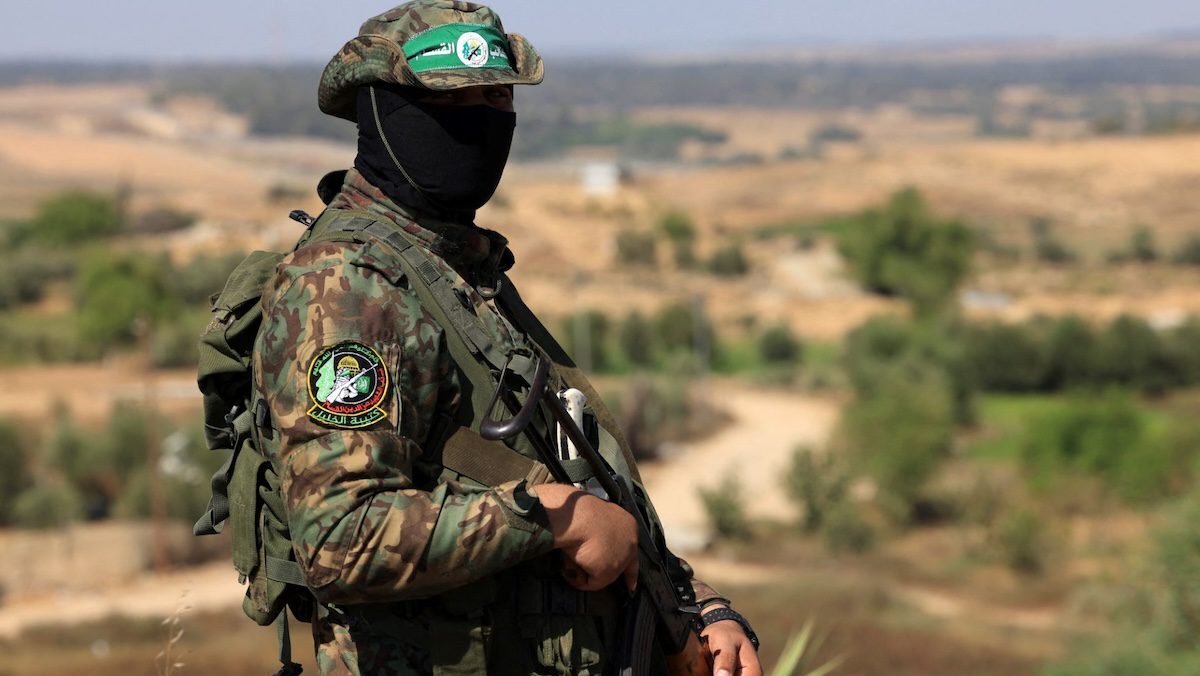
A Palestinian memberof the al-Qassam Brigades, the armed wing of Hamas.
Photo: MAHMUD HAMS / AFP
A document, retrieved by the Israeli army from the residence of the chief of staff to Hamas’s leader in Gaza, lays out a plan to set up a secret base in Turkey and other terror cells elsewhere to coordinate attacks against Israeli targets in neighboring countries, including NATO members, Israel claims.
The printed document, seen by The Times but not publicly available, was discovered in the home of Hamza Abu Shanab, chief of staff to Hamas leader Yahya Sinwar.
Its uncredited author sketches a Hamas put on the defensive in the Gaza strip and which therefore has
no choice but to act with a major effort to establish military hubs which will be the base for special operations that can strengthen the forces of resistance militarily, diplomatically and morally. Therefore we suggest to establish a security branch abroad which will be capable of carrying out intelligence and military operations in the future.
Far from vague, the document outlines an ambitious three-year plan with the aim of “setting up many military cells and safe houses in many countries,” followed by “training the military cells and … practical planning of sabotage and assassination.”
Targets for assassination include “officers and commanders in Mossad”—Israel’s external intelligence agency—and “influential Israelis,” which would ostensibly open the way to such operations being conducted far beyond the Middle East.
Other types of operations, such as “sabotage of Israeli naval vessels” and “kidnapping” were also included.
Most importantly, the document contains concrete details on funding and staffing a base in Turkey.
While it is unclear when the plan was drawn up, or whether it indeed has already been executed, it is a well-known fact that Turkish president Recep Tayyip Erdoğan supports Hamas—a proscribed terrorist group by the EU and the U.S. along with dozens of other countries—having called it a “liberation group” in the wake of its October 7th massacring of Israeli citizens.
Only two days ago, the Turkish leader said that Israel’s prime minister Benjamin Netanyahu, in a reference to the IDF’s ongoing military operation in Gaza, had “reached a level that would make Hitler jealous with his genocidal methods.”
That same day, Erdoğan said that over 1,000 members of Hamas were being treated in hospitals across Turkey, a diplomatic faux pas which later had to be walked back by a Turkish official who said the Turkish leader had “misspoken” and actually meant Gazans more generally.
Even given Erdoğan’s obvious sympathies (last month he openly met Ismail Haniyeh, Hamas’s political leader who lives in exile abroad), thus far there is no hard evidence that Ankara shelters Hamas operatives or allows them to carry out operations from its soil. Erdoğan—who has to tread carefully given his country is a NATO member and would face fierce criticism should that be the case—has continued to insist that remains Ankara’s official policy. Whether one should take his word at face value is another matter.
